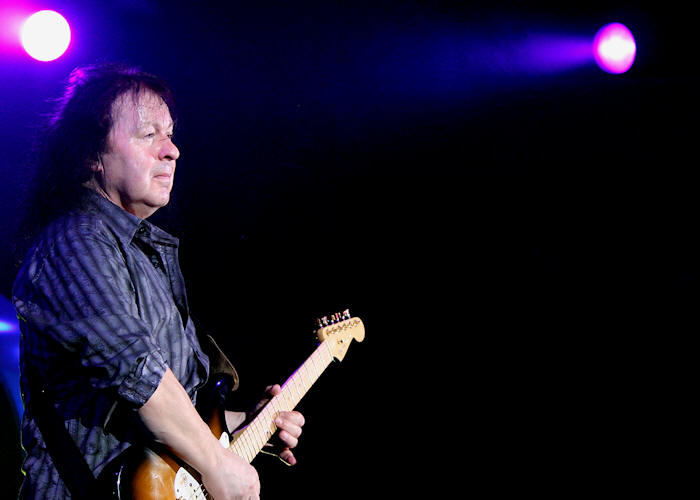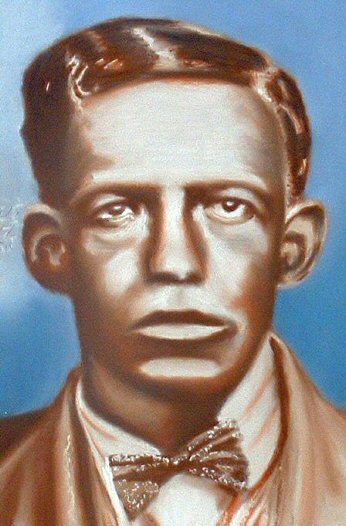
Painting © 2004 Loz
Arkle
Website
© Copyright 2000-2011 Alan White - All
Rights Reserved
Site optimised for Microsoft Internet Explorer
Early Blues Interview
|
|
"John Verity began his music career in the early 1960's, playing guitar in various local bands around his home town of Bradford, Yorkshire, until he was offered a full time gig with a band which was backing various visiting US pop acts, as well as Decca Records UK acts when they toured. The earliest incarnations of the John Verity Band supported legends such as Hendrix, Mountain, Canned Heat and Janis Joplin, and he was quickly signed up as the replacement for Argent's Russ Ballard after Ballard quit the band in 1972. When Argent disbanded in 1976, John put together an outfit called Phoenix with bassist Jim Rodford (later to join The Kinks), then spent a few years producing, playing guitar or providing backing vocals for various acts including Motorhead, Ringo Starr, Russ Ballard, Brian Connolly, John Parr, BowWowWow and The Searchers amongst others. More solo albums followed, with Verity dividing his time between his solo career and recording and touring with Keith Emerson (ELP), Jools Holland, Mike Rutherford (Genesis), The Zombies and John Coghlan (ex-Status Quo). JV always said that live work was his first love and that holds as true today as ever. After playing the Cambridge Rock Festival in the summer of 2009 JV and the band went into the studio once more – The resulting recordings were released in April 2010: VERITY – A Phoenix Still Rising... yet another stage in JV's amazing journey ... "
_________________________________________________________________________ Following recent emails emanating from a mutual friend I had the pleasure in interviewing John: Alan: What are your first musical memories growing up in Bradford, Yorkshire? John: When I was young there was very little music aimed specifically at young people. There was hardly any music on the radio – I remember looking forward to Sundays because there was a programme called ‘2 way family favourites’, which was for overseas men and women to request records for their loved ones at home. Often the records played were of the type not readily available in the UK – rock & roll! I used to hang around older boys before I reached my teens, and they were listening to early American records by people such as Elvis, and even some early R&B. I think I was hooked then! By the time I reached my teens rock & roll was really happening, and it was easier to get early blues records here – I started listening to Radio Luxemburg on my crystal set (don’t ask!) and got my first guitar. My first groups were doing what we called R&B – stuff like High-Heel Sneakers, Hoochie Coochie Man (and other Muddy waters stuff) mixed with the obligatory Chuck Berry, Jerry Lee, Little Richard, and of course Shadows stuff. I played rhythm guitar because I didn’t have a tremolo arm on my Vox Clubman guitar! Alan: Did you come from a musical family - is there a long musical heritage? John: My Dad played in brass bands from being very young. My Mum spent most of her childhood on the road as her Dad was a Vaudeville act travelling from show to show – so I suppose it’s in my blood… Alan: Did you always want to become a musician and how did you get started in music? John: I learned very quickly that in the early 60s if you had a guitar you’d attract the girls! Pretty crap excuse but it was a real incentive to a young guy. Once I got my first guitar I wasn’t really interested in anything else – guitar/music/girls, that was it really. I had a crappy acoustic guitar to start with. I made it electric by fastening a contact pickup to it with tape, and plugging it into a radio – it must have sounded awful! I noticed that the Sunday papers carried adverts for proper electric guitars – and you could get them on credit. So I sent for one, forged my Dads signature on the agreement and stayed home from school every day waiting for the guitar. When it arrived I hid it under my bed and went back to school as normal, hurrying home to practice every night. I came home from school one day to be confronted by a furious Mum. The company had written to my Dad, congratulating him on the purchase of a new guitar!! They found it in my bedroom. Mum said I’d have to earn the money to pay the instalments and that’s how I got started. Dad got my gigs in Working Men’s Clubs and drove me there. Mum shoved me on stage – terrified, to sing and play accompanied by the organist and drummer! Horrendous! Anyway, it got me started, and I was soon able to find a group (band) to play in. Alan: What kind of material were you playing in the early days and who were your heroes? John: As I said earlier, we played what we called R&B. But I learned very early on that if you wanted to work you’d have to give the people what they wanted so the sets would also have plenty of current chart stuff too – this was in the 60s so we’d be able to do Chuck Berry which was cool. We always finished with Stormy Monday – which would kill the gig stone dead! We loved it but the punters didn’t, in the local WMC. Alan: What first attracted you to the blues? John: I just drifted into it. When I look back, even Elvis’s early stuff had a lot of blues influence and probably didn’t realise it at the time, but I was attracted to those particular tracks. I got hold of a lot of early blues imports and was listening to those alongside the chart stuff of the day. Remember I started gigging in my early teens so always had to keep an awareness of what people would be prepared to listen to. I think I probably began very early on in my career to sort of rearrange stuff into my own, more bluesy style – I would play popular songs, but in a slightly different style / more bluesy. Alan: What does the blues mean to you? John: An awful lot. It’s a way to express myself. My whole life has revolved around music, performing/playing/writing/recording. I’ve had to diversify at times to survive but my music has always had a blues edge.
John: Yea it was an amazing time. In the late 60s I was in a band that found itself in the Bahamas of all places, playing for 7 nights a week in a club that catered for American college kids on holiday (vacation). We could play what we liked and as we had a brass section there was a lot of Chicago blues in there. An American promoter came in one night and offered us a deal to move to Florida and open shows for the acts passing through. Of course we jumped at the chance and that’s how I got involved with all this wonderful stuff. We got really close to signing with Atlantic records but it didn’t quite work out and the band split. I decided to stay on and formed the first John Verity Band, with American musicians on bass and drums. I could probably write a book about it!! Alan: How did you come to join the band Argent? John: I came back from America and formed the first JV Band with an all-English line-up. Back in Yorkshire I was writing and recording demos of my material, and of course gigging again in the UK. I managed to get a record deal – I was the first UK act to be signed by ABC Dunhill and found myself on the same label as BB King!! Amazing. The record company were looking for a tour to put me on to promote the album, and eventually got me the opening slot on an Argent tour. During the tour, the guitarist/vocalist Russ Ballard decided to quit Argent, and eventually I was in the frame to replace him. Alan: You then formed the band Phoenix, producing their albums as well as the first Saxon album I believe. John: Yep. On what turned out to be the final Argent tour of America, I decided I wanted to get back to a more straight forward approach to my music. I was also getting into more production projects. Originally Phoenix was meant to be an offshoot project and I asked Bob Henrit and Jim Rodford from Argent if they fancied playing some blues with a rocky edge. We started rehearsing in my studio in London, and it turned into our main project when it was announced that Argent had folded. Going back a few years, Biff & Paul – who eventually formed Saxon, had been in the final line-up of the JV Band. Biff was my bass player. We split when I joined Argent but we stayed in touch and I helped them to get their first record deal, and produced the first album. Alan: Tell me a little about your record production work in recording studios and around the world and also back in your native Yorkshire; was this full time? John: I got my first serious recording setup back in the Bahamas – in a cupboard! I was able to get some decent recording gear and would spend hours trying out ideas. I continued – (in another cupboard) when we moved to Florida. By the time I arrived back in England I was writing and recording all the time, and one of the first things I did was find premises in which to build my first proper studio. We did all the demo’s that got my first record deal there. That would be around 1972. When I joined Argent and moved to London I was able to build a studio in my house there and started getting involved in other projects, sometimes producing and sometimes as a session player. From there I started getting offers to do projects all over the place – Sweet Silence Studios in Copenhagen, The Chateaux in France, Mountain Studios Montreaux etc. Right through the 70s I was combining studio and live work really.
John: Yea that was my ‘comeback’ album! I had missed gigging, and had started to put some of my own tracks down in the studio whilst working on other peoples productions. Those tracks turned into Interrupted Journey and really I haven’t stopped recording my own stuff, or gigging since then. Alan: You guested at the 1994 Manchester Festival "Fender Stratocaster 40th Anniversary" alongside rock legends including Frankie Miller and Rory Gallagher; tell me about the gig. John: It was the first of the Fender ‘Anniversary’ gigs. I’d been a long-time Fender user and endorsee – I’d always used a mix of Fender & Marshall amps, with Fender or Gibson guitars so I knew all the people involved. It was a great night – I got to play with The Crickets! I spent hours talking music with Rory at the bar – heaven! Alan: More recently you opened for Jools Holland on his 32 date 'Sex, Jazz and Rock'n'Roll' tour; tell me about the experience. John: That came out of another production/session project. I’d been working on an album with Bianca Kinane, and her record company got her the opening slot on the Jools tour. I was asked to put a band together for her which I did, and off we went. A great experience – Jools has ‘em eating out of his hand, and his band is full of really tasty players… a really nice tour.
John: There’s nothing like it really. As I’ve said, I’ve had a studio now for many years and I spend a lot of time in there, and I love doing sessions for other people but there’s nothing like the buzz of playing in front of people. I’ll play anywhere! I do festivals, I play in bars – I play in peoples back gardens! Like I said I’ll play anywhere they’ll have me, I guess it’s in the blood. I find that it doesn’t matter what’s troubling me, if I get out my guitar and get on stage I can just play it out of my system. I’m a really lucky man. Alan: Who has influenced you the most in your music writing and playing? John: There isn’t any one person or band. I appreciate all kinds of music. I still listen to BB & Albert King, Bobby Bland - Aretha kills me when she sings, but I’ve also learned a lot from Hendrix, The Beatles, Eric Clapton, Chuck Berry…When I first heard Terry Reid, and even Robert Plant they gave me the courage to sing. I had always been a guitar player and my singing voice is in a high register – I thought you had to sound like Otis Redding or BB to be a singer! Alan: Are there any particular songs that you play that have special meaning to you? John: Oh, too many to list. There are so many special songs out there. I sing Stay With Me (Baby) and it lets out so much stuff I can’t tell you – it can sometimes even take me back to the day my Mother died. It’s too heavy to talk about, but that’s what music can do… Alan: Tell me about the making of your new album 'It's a Mean Old Scene', a mixture of self penned songs as well as versions of your favourite blues standards. When is it being launched? John: Ok. I’m aiming to have the album out in December 2011. It’s all being recorded at home in my studio. I’m lucky – and my neighbours are lucky, that I live in a detached 300 year-old cottage with very thick walls! I can play anytime I like and I record when I feel inspired. There are songs from my live set that I’ve never done studio recordings of – like Hoochie Coochie Man, so I’m doing them pretty close to the live versions – though we never really do them the same two nights on the trot… The live band has a pretty fluid line-up. Most good musicians these days are into lots of different projects so I have to have a shortlist of people to draw on for gigs – I have 3 regular drummers & 3 regular bassists to choose from & I sometimes use keyboards, sometimes a harp player. I’m trying to get everyone on the album, and get their take on the material. Its sounding really great so far. The first track for the new album is here on YouTube:
Alan: I believe your new JV Signature Fret King guitar is released in January 2012, tell me about it.
Alan: What's in the pipeline regarding gigs, tours and record production? John: Off to Italy tomorrow for a festival. Then I have a couple of production projects to complete before my own album - I really need to spend some serious time in the studio in order to complete the album in time for the launch gig at the Stables Theatre, Wavendon near Milton Keynes on December 10th 2011. Then it’s out and about promoting the album, I have festivals in the pipeline – Skeggy Rock & Blues in January is one of them but really we’re in the planning stages – any ideas gratefully accepted! Alan: Thank you so much John, I really appreciate your time. _________________________________________________________________________ Check out John Verity at the Skegness Rock & Blues Festival 2008
John will be performing at the Skegness Rock &
Blues Festival 2012
_________________________________________________________________________
Return to
Blues Interviews List |








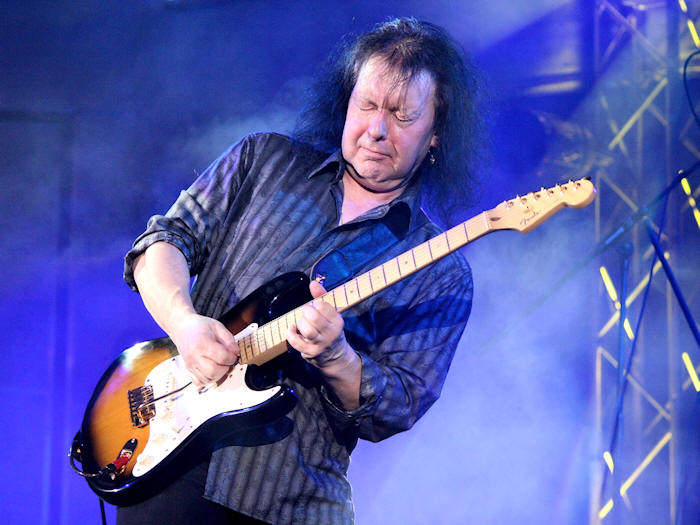
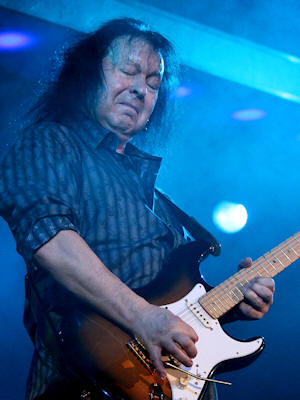 Alan:
In the 70s you lived and worked in the USA supporting many big names
such as Jimi Hendrix, Canned Heat, Savoy Brown and Janis Joplin; you
must have some fond memories.
Alan:
In the 70s you lived and worked in the USA supporting many big names
such as Jimi Hendrix, Canned Heat, Savoy Brown and Janis Joplin; you
must have some fond memories.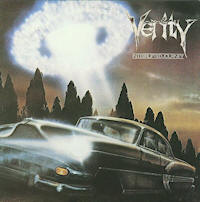 Alan:
You then went back on the road to promote your album 'Interrupted
Journey' which was pivotal in boosting your career in the UK, Europe
and USA I believe.
Alan:
You then went back on the road to promote your album 'Interrupted
Journey' which was pivotal in boosting your career in the UK, Europe
and USA I believe.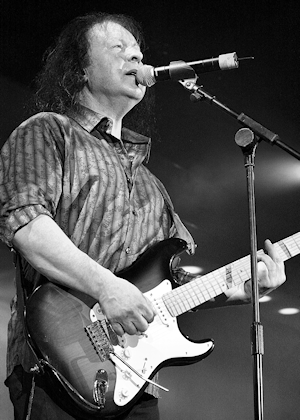 Alan:
You have been quoted as saying your first love is live work, why is
this?
Alan:
You have been quoted as saying your first love is live work, why is
this?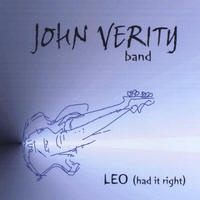 John:
Over the years I’ve often done trade shows for various guitar & amp
companies, demonstrating their stuff. At a trade show a couple of years
ago I was chatting to the designer Trev Wilkinson from Fret King about
guitars (what else!). He asked what my ideal gigging guitar would be, I
told him & he said ok let’s do it and call it the JV model. That’s it
really – they sent me a guitar to mess around with, I spent a year
trying every type of pickup/set & format before deciding on a very
typical Strat-type layout with a few JV twists. After all – Leo had it
right!
John:
Over the years I’ve often done trade shows for various guitar & amp
companies, demonstrating their stuff. At a trade show a couple of years
ago I was chatting to the designer Trev Wilkinson from Fret King about
guitars (what else!). He asked what my ideal gigging guitar would be, I
told him & he said ok let’s do it and call it the JV model. That’s it
really – they sent me a guitar to mess around with, I spent a year
trying every type of pickup/set & format before deciding on a very
typical Strat-type layout with a few JV twists. After all – Leo had it
right! 